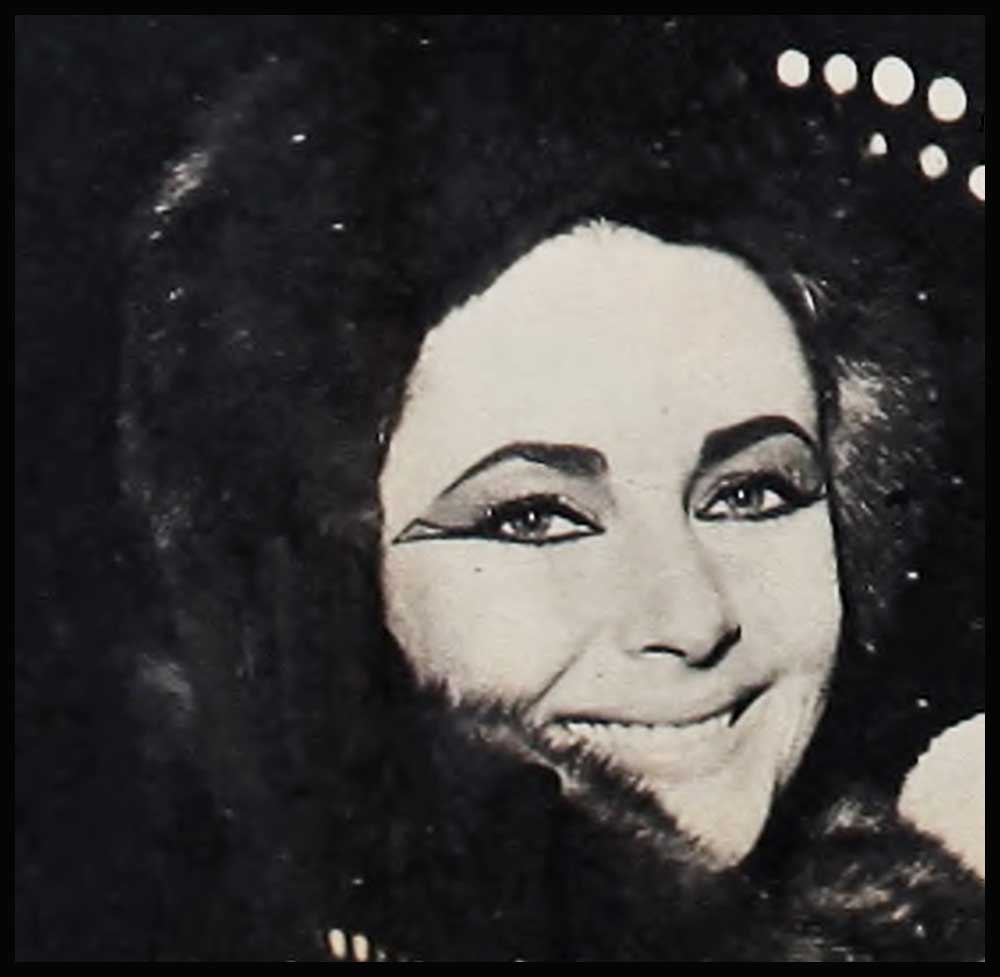
What The World Is Saying About Elizabeth Taylor?
For months, tire “Cleopatra” set had been a volcano of molten lava, threatening to erupt at any moment. And erupt it did— with a thunder the Eternal City hadn’t felt since the days of the real Cleopatra herself. The latest eruption came when shocking headlines circled the globe, announcing that Elizabeth Taylor and Eddie Fisher had, as the saying goes, “had it!” The reason for the break-up was reported to be Liz’ co-star, Richard Burton. Stories boldly hinted that Liz was so smitten with the will Welshman that she would divorce Eddie as soon as her lawyers could work out a property settlement. The world was shocked. Hardly was the ink dry on those headlines, when new ones appeared—“Liz and Eddie Deny Split Rumors! Eddie Brands Situation ‘Too Silly for Words.’ ” The stunned world was completely confused. What is really going on over in Rome? Is Liz divorcing Eddie? Is she in love with Burton? Is there a scandal? Those are the questions. What are the answers? To get the answers, it is necessary to ask a question. That question is: Where does a movie love scene begin and end? The person asked might well be Joe Mankiewicz, veteran writer-director-producer. And his answer would be astounding. For Mankiewicz feels that there is no credible love situation on screen unless it exists to some extent off screen.
AUDIO BOOK
Mankiewicz, working day and night, has written the hottest love scenes ever to be seen in any movie for the epic “Cleopatra.” With the sexy Egyptian queen as his inspiration and with her reputation for entrancing every man she came in contact with, Mankiewicz has conjured a movie heroine to pale all others of all time. And the climax of this creation is capped by Liz Taylor, the queen of the screen, who is interpreting his canny Cleo, not as she might have been, but as Cleo herself might have dreamed of being.
For the fact is, Joe Mankiewicz, more than anyone else, is aware that on this film and its effect on audiences of the world rests not only the future of a major studio (20th Century-Fox) but maybe even the destiny of the motion picture industry itself. Spyros Skouras, president of 20th is banking on “Cleopatra” to secure his own position in the faltering film company and to reinstate 20th’s crumbling empire. And what Skouras wants, Mankiewicz wants to get him. So the responsibility is crushing.
But Mankiewicz has more than Skouras in mind. He is determined that “Cleopatra” will be his crowning achievement. To Joe Mankiewicz this is more of a life-and-death struggle than it is for Skouras or 20th Century-Fox and its stockholders. Mankiewicz has personally dedicated himself to making this movie an incredible masterpiece.
And this brings us to the movies’ love scenes and Elizabeth’s real love-life.
A tidal wave of emotion
Because the love scenes are after all the meat of the life of the Vixen of the Nile, Mankiewicz created love scenes for Liz and Burton that are tremendously exciting. So convincing was his conception and execution of these love scenes that Liz Taylor and Richard Burton themselves were swept out to sea in a tidal wave of emotion that virtually drowned their own sense of reality and caused a havoc of scandal.
Mankiewicz brought Liz and Burton together directing them to feel each other’s pounding hearts, to hear each other’s passionate breathing and ordering them to react to each other not as if they were Cleopatra and Antony but exactly as though they were the ill-fated lovers incarnate.
And Liz and Burton are possibly two of the best direction-takers in the entire acting colony. Liz is no make-believer in her acting. Nor is Shakespearean-trained, hotblooded Welshman Burton a pretender. Both belong to the “I am” school of acting, not the “I will be.” What Liz portrays, Liz lives and breathes. And what Burton says, Burton feels with every fiber of his soul. They also possess in common a spectacular earthiness and directness—traits for which they both have been censured and criticized.
That’s why, to those who know them well, there was nothing but the inevitable in the heady celluloid kisses and caresses. Mankiewicz knew this. Mankiewicz planned this. He deliberately staged the setting for his principals and launched them on their way to a real as well as reel climax of attraction right in front of the rolling cameras.
And then he closed the love-scene sets to all non-participating personnel.
And when Mankiewicz bars, he bars everybody with a Capital E. In this case the Capital E. stood for Eddie.
That was when things really came to a head.
Eddie could not stand for this affront. He, the husband of the star herself, was not permitted onstage to watch his wife at work. He was put into the position of consort rather than husband.
There is no doubt in the minds of the people “in the know” that this death-to-the-ego edict of Mankiewicz precipitated violent dissension in the Fisher household. There is no doubt that Eddie, watching his wife’s complete involvement in her love scenes and her studied indifference and chronic fatigue in their own household, felt that something had gone out of their lives—that oneness they had so recently shared.
No matter that the explanations were sound and sensible and that Cleopatra and Antony should not be distracted by the presence of family or friends in these scenes. No matter how he appraised the situation and no matter how tactful Mankiewicz was about closing the set, Eddie faced the realization that Liz could have and should have countermanded that order and allowed him on the set. This painful acknowledgement, more than Mankiewicz’s edict, hurt Eddie . . . and later made him angry.
The recriminations, the words that passed between the Fishers can only be surmised. But the evidence that they had lost their blissful “all-alone-together-in-a-crowd-look” was obvious. They stopped reaching out to touch each other’s hands or give a quick kiss or wink in passing. They stopped looking in love.
Around the villa, Eddie was patently miserable. Everywhere he looked he felt Elizabeth smothering his thoughts and feelings. Her nail polish on a table, her script pages at their bedside, her cosmetics in their bathroom—all combined to aggravate the misery and aloneness he felt. He dedicated himself to the children—to Mike and Chris and adorable Liza and their newly adopted German child, Maria, not strong enough at eleven months to try to walk as other babies do. For a while it was fun, but when the children continuously asked for “Momma,” Eddie had to choke back his emotions and explain she was working at the studio.
If Eddie hadn’t left . . .
Finally, Eddie decided to go to their chateau in Gstaad, Switzerland. Unfortunately, many observers say, if Eddie had not so impulsively left Elizabeth, the subsequent events that saw her once again being bundled unconscious into an ambulance and rushed to a hospital, fighting once more to stay alive, might never have happened.
There were so many conflicting reports about the nature of Elizabeth’s sudden and mysterious illness on that February night that they are all best discounted entirely. Everyone connected with the picture and with Eddie and Liz had surprisingly novel versions of the “food poisoning” that felled her. Liz’ secretary, Dick Hanley, laughed at 20th’s “chili beans” and the doctors’ “spoiled oysters” stories and said that Elizabeth was just tired and needed a rest. But doctors don’t pump a patient’s stomach if there is no food or other kind of poisoning—especially when the patient’s health is as sensitive as Elizabeth’s.
Nor can anyone really believe the whispers that intimated that Elizabeth, in remorse, in regret, in indecision and in solitude swallowed tranquilizers in dangerous dosage. Those who know her well know Elizabeth is incapable of even the thought of suicide—much less the act itself. But the fact does remain that her blood pressure, according to hospital records, dropped dangerously low as it does in food or drug poisoning.
While she lay unconscious, Eddie was called in Switzerland. But Eddie had already left for Portugal to meet Milton Blackstone who was there on personal business. Blackstone’s presence at that particular moment of crisis in Eddie’s domestic life indicated that Eddie again had need of Blackstone’s advice. Reached in Portugal and told of Liz’ startling hospitalization, Eddie and Blackstone chartered a plane and rushed to Rome.
Burton in Paris had also been alerted to the situation and he caught the first plane back, saying he intended to visit her at the hospital.
Eddie arrived in Rome, and rushed wildly out to the hospital looking distressed and oddly stern. There he was informed that sorry, but husband or not, Mrs. Fisher was not to have any visitors until her blood pressure showed improvement. Picture yourself if you can in Eddie’s nervous shoes—wild with worry and contriteness and who knows how many other conflicting emotions, being told you were not going to be allowed to see your wife, to hold her hand, to encourage her back to health, to reassure her with your loving presence.
Eddie Fisher was, as Eddie Fisher had every right to be, stunned.
Eddie was, as Eddie had a right to be, furious.
Eddie was raging with anger and frustration.
For the second time in less than a week he found himself shoved outside of his wife’s life. For the second time he faced enormous public humiliation. And for the second time he was faced with the overwhelming fact that if Elizabeth had wanted him at her side, nothing in the world could have kept her from having him there. How could he help but remember how, when she was inches from dying in London, she had the strength though voiceless and motionless to scribble three words to him on a pad . . . “I love you.” And how could he help but realize that his wife, as well as other outside forces, were keeping him at an arm’s length when he was eagerly desperate to be inside the circle of her love and desire.
Fury and desolation mixed their elixir in Eddie’s eyes as he exited from the hospital without seeing his wife, heading for a nearby hotel with Blackstone so that he could rush back to the hospital within minutes to be at the side of his beloved Elizabeth.
That was what started the gossip. Rivulets of rumors began trickling out. For now that some of the Fisher linen had been hung up to public view, friends and coworkers openly discussed what they called, “the unmistakable symptoms of a triangle” in their midst.
It was the kind of sudden scandal that is unwieldy to deal with. It was hampered somewhat by the language barrier and by the complete confusion and devastating fear of far-reaching repercussions, not only to the people involved, but to a studio and industry as well.
The publicity people at Cinecitta Studios and the press associated with Liz and Burton were foolishly naive and uncoordinated in their reactions, and as a result of conflicting lies, pandemonium broke out.
Burton’s agent made the worst mistake when he issued a statement over Burton’s name but without his admitted knowledge, that there was positively no romantic attachment between Liz and himself. All the denial did was to make what had before been only whispered about now become a public issue. The statement bannerlined across the front pages of the world, the secret-secret might-be triangle that up till then was still very much “blind item fodder” and “inside-the-trade-talk.” The shattering impact of the agent’s statement lost him his job and very nearly cost Liz and Burton all they hold dear in life.
As the gossip raged, Eddie seethed. The hospital bulletins came hourly, but impersonally, from a nurse. One hour stretched to two, two to four, four dragged onward to six, and then seven long, unbelievable hours later, Eddie was summoned to the hospital at last to see his wife. She was pale and shaky but recovered just enough to be her slightly defiant self. Whatever passed between them at that meeting will probably remain their secret for life. But it was no secret that Eddie left the hospital a short time later looking very much like he himself ought to be hospitalized. He sped back to his villa with his friends in abject silence.
When the press tried to call Eddie at his home, they were referred to another number where a man’s voice tried urbanely to convince them they were making the proverbial mountain out of a molehill. Eddie himself refused all calls, even those made by his dearest friends and family across the ocean. He remained in complete seclusion pondering on the limelight into which he had been catapulted for the second time within three years.
A day later Eddie drove to the hospital with some of Liz’ clothes—a fashionable leopard coat with spats to match that was to he her check-out ensemble. They were going home—together. And hundreds of photographers were there to record it.
What the world expected to see of course was Eddie with his usual protective arm and adoring grin focussed on his wife. But what they saw in those cruelly candid photos was a photograph of a husband and wife divided not only by lots of space but by the grim and determined expressions on both their haggard faces. In the car, you could have shot moose, reported one onlooker, so far apart did they sit. Each looked stonily out at the throngs jammed on the sidewalks of the side exit of the hospital. The elegant car pulled hurriedly away from the probing.
When they arrived at their Via Pignatelli villa, there was another cluster of press men begging for photos. Eddie strode briskly by them, entered the hallway and disappeared. Elizabeth was prevailed upon to pose just for a few pictures outside the door before she removed her fur outfit. The cameramen snapped gratefully but then asked her to call Eddie out for “just one shot” together. Liz’ secretary went inside to get Eddie but came out without him and muttered Eddie didn’t feel like having his picture taken just then.
Elizabeth smiled sweetly with her lips but there was a hint of other emotions in her flashing eyes. She waved her little girl wave, then she, too, disappeared into the lovely old house.
Nothing much was heard from the Fishers for the rest of the week. But rumors kept reappearing that there was real trouble in the Fisher marriage and that all the mysterious hocus-pocus would soon result in a shattering headline. The headline came from a most unexpected source. Louella Parsons. Louella has been a warm friend and confidante of Elizabeth’s and Eddie’s for many years. Additionally, Louella is a respected reporter on the Hollywood scene. So her by-lined story “Liz And Eddie To Split” carried great weight and impact. Then and only then did Elizabeth and Eddie organize their forces and decide to issue a formal statement to the effect that the rumors were ridiculous and that they were not separating. Louella never refuted her story for the simple reason that apparently no one, not even the Fishers, asked her to do such a thing. Normally, if a story were untrue, the reporter is asked for a retraction.
Whoever gave the scoop orginally to Louella apparently asked her to “sit on the story” for a while for fear it touch off a bomb in the industry. And Louella faith-fully kept her word. Then when she learned that Elizabeth Taylor’s agent had flown to Rome suddenly for conferences about property settlements, she decided she could no longer suppress the news that was beginning to trickle out over the transcontinental phones. Louella printed her news.
Instead of demanding a retraction from Louella, Eddie gave a personal statement to the press saying that he and Elizabeth were still in love and why would they have adopted a child if they didn’t plan to continue their marriage?
But even the intimate and plush gathering for Liz’ birthday a week after the expose failed to restore the old happiness to Liz’ adoring entourage. They supped magnificently at the historic Inn of the Bear and tried half-heartedly to “twist” out of their doldrums but left early because Liz had to report back to “Cleopatra” the next morning.
After that more silence. Then suddenly as if nothing in the world had happened. Liz, her stately parents Mr. and Mrs. Francis Taylor and Eddie turned up at a beatnik beer hall in Rome to have their photos taken. In the pictures everyone looked determinedly happy. Liz looked determinedly straight in the eye of the camera, away from Eddie.
What did the photo mean? Probably it was the studio’s belated attempt to patch up some poor public relations. No doubt it was meant to convey that everything was fine with the Fishers. And that there was a wholesome family feeling in a situation that was bursting with possibilities. The worst possibility being that 20th’s astronomical investment might he poured right down the drain if Liz and Burton’s behavior proved as cataclysmic as the previous Debbie-Eddie-Liz triangle.
Spyros Skouras could have gotten there without a plane they joked, so choked with worry was he at this turn of events in his campaign to make “Cleopatra” the greatest film in the history of movie making.
He did have his meeting with the Fishers but no one was present at their chat.
A few days later, Eddie flew to New York supposedly for business reasons. But headlines told another story: Eddie had secretly entered a private hospital for a “rest.” . . . Liz was informed of his illness but she was “too busy” to fly to his side.
Out of the hospital, Eddie called a press conference at which everyone expected him to announce the end of his marriage. Instead, he stuck to his story that his marriage was fine. Later, when photos of Liz and Burton hit the front pages, nobody could deny the rising surge of items that the marriage of Liz Taylor and Eddie Fisher was over.
It’s common knowledge that Liz took Michael Wilding from Marlene Dietrich. And Mike Todd from Evelyn Keyes. And Eddie from Debbie Reynolds. Has she now taken Dick Burton from his wife Sybil?
What the world is saying about Liz is: If she ditches Eddie, she may pay with her career and crash into oblivion. Others say no, claiming that it was Eddie who paid last time. And they add, “Maybe now it’ll he Richard Burton’s turn to pay.”
—GERRY GORDON
It is a quote. PHOTOPLAY MAGAZINE JUNE 1962
AUDIO BOOK

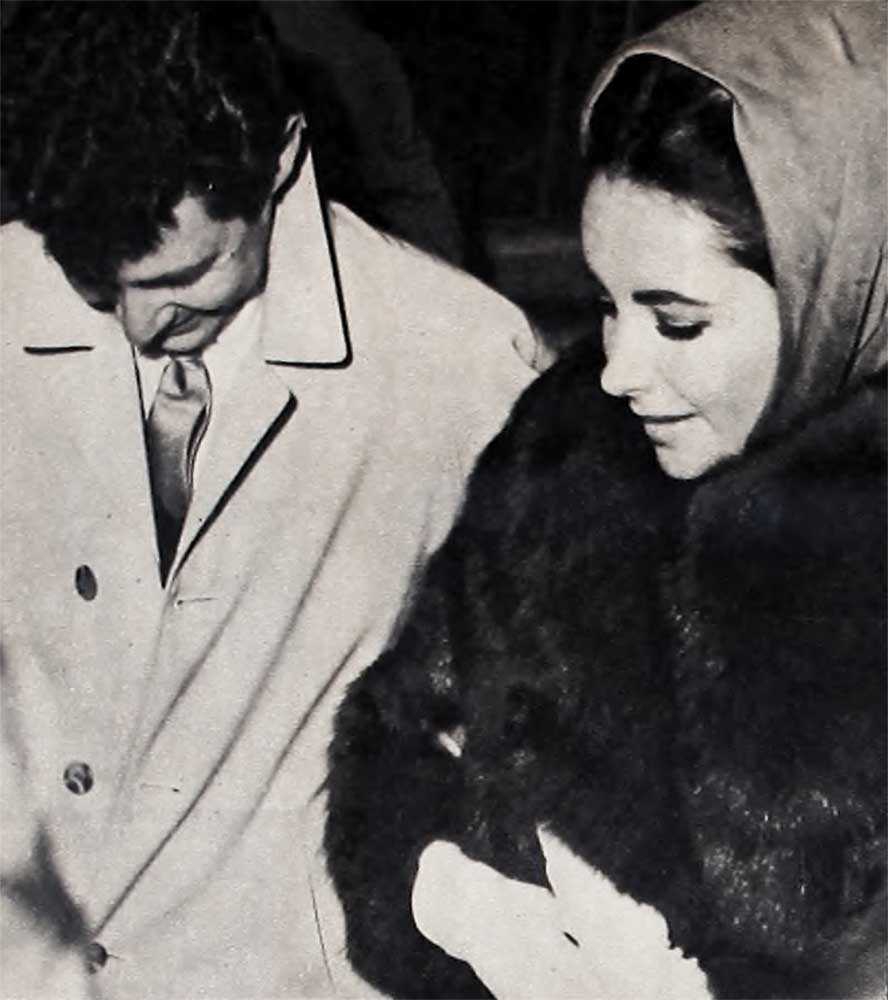
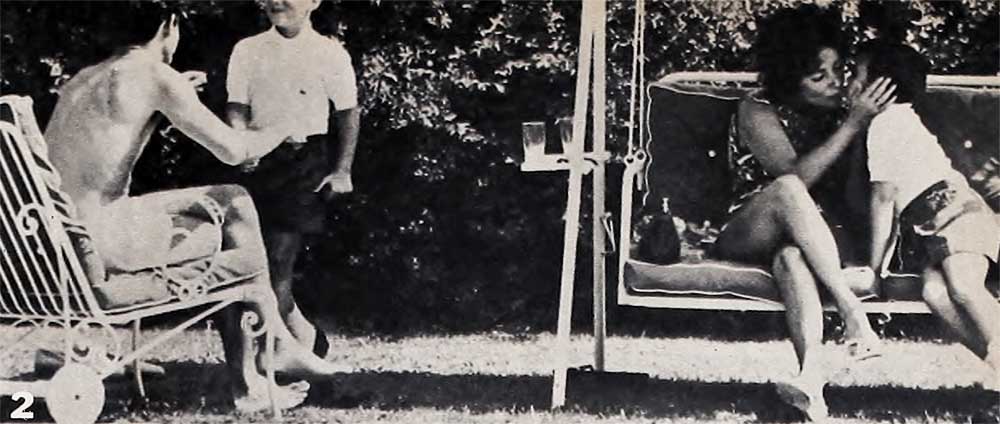

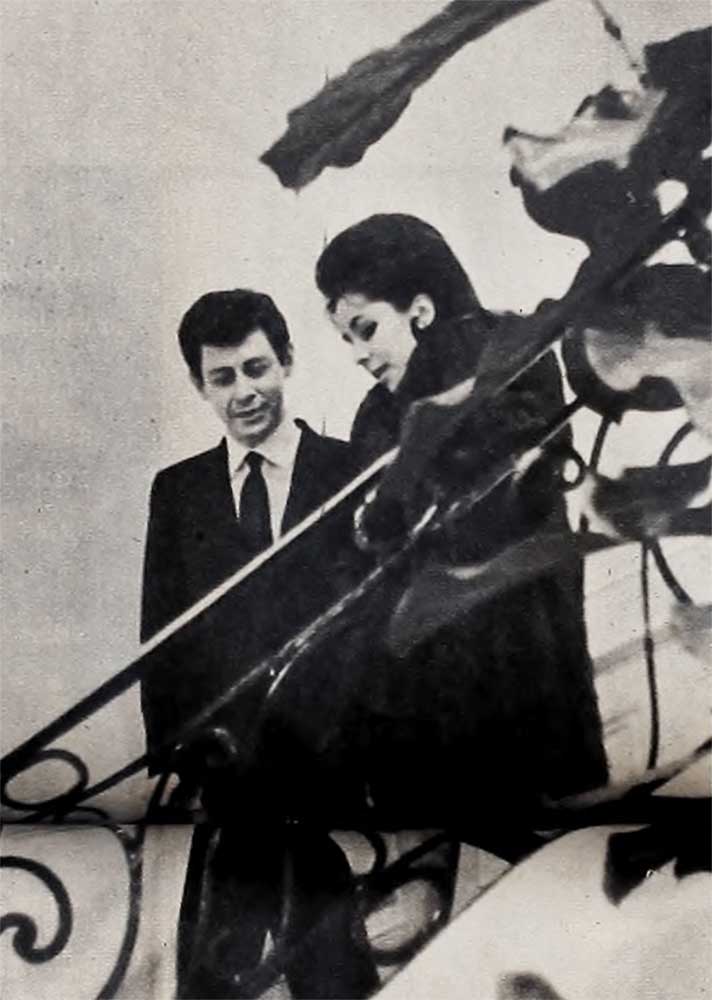
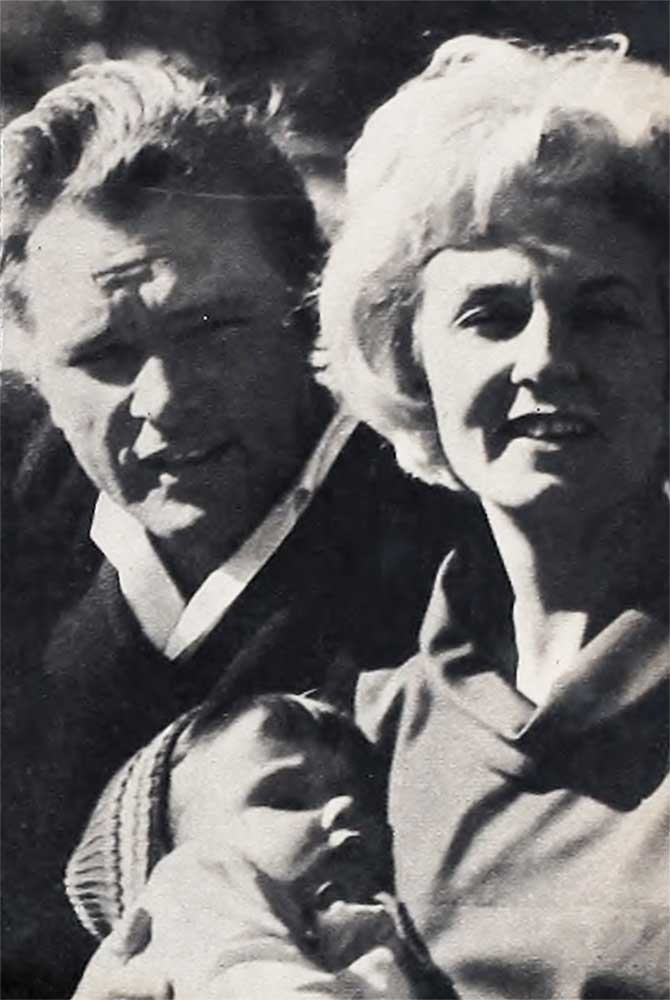




No Comments